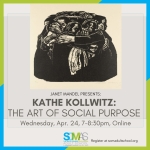Big Lies of Our Time in the United States
nan said:
drummerboy said:The point of this article is to counter the ten biggest pervasive lies (assumptions) about the US. The point of this thread is to discuss/debate these. I thought it might be interesting to talk in larger terms than just "Trump Bad," voter shaming and Russia, Ruissia, Russia. I like this article and I thought it would stimulated some ideas.
Not quite sure of the point of this thread. Yes, presidents, politicians and even people in my own life have lied.
But even though Mr. Street goes to some lengths to try and separate what Trump does from what past Presidents have done, he really doesn't go far enough, and to even put Trump into the discussion and to say that we are "inured" to Trump's lies (are we?) because of past lying really misses the boat. What has happened in the past is nothing like what Trump does.
Nothing.
Street does a great disservice in trying to equivocate the two. Furthermore, based on how he characterizes Trump's lying, he doesn't seem to actually understand why he does it.
But, to top it off, he lists the ultimate, number 1, top lie on his list that is "We are a democracy".But, when he gets to the big payoff, which is the top ten lies of all time, he lists this as number 2.
Capitalism is about democracy.
Funny, how the 2nd most endemic lie in our society is a phrase that I don't think I've ever heard. Maybe I just don't pay attention.
His explanation for #7, "Hard work and individual brilliance is the key to individual wealth, and the lack of such work and brains is the source of individual poverty."is kind of silly and simply describes how wealth accumulates in our system (though I happen to think that it is a top lie myself, just not for the reasons he states. He never mentions, for example, the role of luck.)
The thing I noticed in the responses is that many seem to think that any list about what's bad in the US don't think much of any list not headlined by Trump. But, as I have been saying, Trump is not so much the problem as a symptom of the problem and this list (which mentions Trump is horrible terms) focuses on those.
I think you should view your surprised reaction to the Capitalism is about democracy lie is positive, cause you sound like you are taken aback and a bit confused but thinking about it. That's what good articles do--make you think.
I don't speak for Paul Street, but in general, I think he is going for the biggest, most pervasive lies. The role of luck does not figure in systematic problems, unless you are saying that the system is set up to screw you over unless you get lucky.
The reason why I was surprised about Capitalism is about democracy is because it seems that Street has made up the concept on his own. The phrase itself appears only 6(!) times in a google search. How can something he claims to be a widespread misbelief be so nonexistent in our discourse?
The role of luck is central to Lie #7, "Hard work and individual brilliance is the key to individual wealth, and the lack of such work and brains is the source of individual poverty." For him to to ignore it doesn't fill me with confidence about his acumen. He clearly doesn't understand this lie.
drummerboy said:
nan said:The reason why I was surprised about Capitalism is about democracy is because it seems that Street has made up the concept on his own. The phrase itself appears only 6(!) times in a google search. How can something he claims to be a widespread misbelief be so nonexistent in our discourse?
drummerboy said:
The role of luck is central to Lie #7, "Hard work and individual brilliance is the key to individual wealth, and the lack of such work and brains is the source of individual poverty." For him to to ignore it doesn't fill me with confidence about his acumen. He clearly doesn't understand this lie.
People think capitalism and democracy go hand in hand. We are so brainwashed about that we don't even think it's possible to separate them. It's not going to be commonly said or discussed, especially in the mainstream. When people talk about how we have a "free country" the image in their head is a world ruled by capitalism.
It's only since 2016, when Bernie Sanders ran as a "Democratic Socialist" that people could commonly even say the word "socialist" without automatically losing or getting humiliated. Obama used to get called a "socialist" by the right-wing. Now it's more common, but still not widespread and Democratic Socialism is just Democrats acting more like FDR than Reagan. It's not an overthrow to our system of government.
jamie said:
Hillary would have been an awesome president - and she won the popular vote.
Are you suggesting another lie for the list?
jamie said:
Hillary would have been an awesome president - and she won the popular vote.
author said:
jamie said:https://ijr.com/2015/12/503111-here-are-the-3-bills-hillary-clinton-sponsored-that-became-law-while-u-s-senator/
Hillary would have been an awesome president - and she won the popular vote.
Sbe would have helped continue this lie.
10. The U.S. is a Force for Good and Peace in the World
nan said:
author said:Sbe would have helped continue this one.
jamie said:https://ijr.com/2015/12/503111-here-are-the-3-bills-hillary-clinton-sponsored-that-became-law-while-u-s-senator/
Hillary would have been an awesome president - and she won the popular vote.
10. The U.S. is a Force for Good and Peace in the World
A lie by incompleteness. Sometimes the US is a force for good and peace. Sometimes it's not. The American exceptionalists are wrong -- the US is neither exceptionally good nor exceptionally evil. It's just a country. I'm exceptionally interested in it, as it's my country, but in the end it's still just another country.
PVW said:
nan said:A lie by incompleteness. Sometimes the US is a force for good and peace. Sometimes it's not. The American exceptionalists are wrong -- the US is neither exceptionally good nor exceptionally evil. It's just a country. I'm exceptionally interested in it, as it's my country, but in the end it's still just another country.
author said:Sbe would have helped continue this one.
jamie said:https://ijr.com/2015/12/503111-here-are-the-3-bills-hillary-clinton-sponsored-that-became-law-while-u-s-senator/
Hillary would have been an awesome president - and she won the popular vote.
10. The U.S. is a Force for Good and Peace in the World
Sounds like you believe a lie.
Nan,
You do recall that we had a legitimate casus belli with Japan in 1937, but FDR showed restraint. That was, as I am sure you remember, the Panay Incident.
FDR didn’t want war. War came to us. Of course, maybe you consider it to be a provocation to defend our own interests and to defend Western civilization.
nan said:
PVW said:Sounds like you believe a lie.
A lie by incompleteness. Sometimes the US is a force for good and peace. Sometimes it's not. The American exceptionalists are wrong -- the US is neither exceptionally good nor exceptionally evil. It's just a country. I'm exceptionally interested in it, as it's my country, but in the end it's still just another country.
Yeah, I am also puzzled by your response on this one. Can you please explain what you are getting at with that?*
*Drummerboy, you will note that my post is addressed to Nan. No need for you to let us know what she really means.
nan said:
drummerboy said:People think capitalism and democracy go hand in hand. We are so brainwashed about that we don't even think it's possible to separate them. It's not going to be commonly said or discussed, especially in the mainstream. When people talk about how we have a "free country" the image in their head is a world ruled by capitalism.
nan said:The reason why I was surprised about Capitalism is about democracy is because it seems that Street has made up the concept on his own. The phrase itself appears only 6(!) times in a google search. How can something he claims to be a widespread misbelief be so nonexistent in our discourse?
drummerboy said:
The role of luck is central to Lie #7, "Hard work and individual brilliance is the key to individual wealth, and the lack of such work and brains is the source of individual poverty." For him to to ignore it doesn't fill me with confidence about his acumen. He clearly doesn't understand this lie.
It's only since 2016, when Bernie Sanders ran as a "Democratic Socialist" that people could commonly even say the word "socialist" without automatically losing or getting humiliated. Obama used to get called a "socialist" by the right-wing. Now it's more common, but still not widespread and Democratic Socialism is just Democrats acting more like FDR than Reagan. It's not an overthrow to our system of government.
I can't figure out what the highlighted passage even means. And the last statement is meaningless. Of course Americans will think this - it's the only world they have experience in - and the most famous example of a something approaching a socialist system was the USSR - decidedly less free then the U.S.
But it doesn't mean they think the two are inextricably linked. The only reason the word socialist is more accepted now in the U.S. is because the population of people who grew up with the USSR is dying.
tjohn said:
Nan,
You do recall that we had a legitimate casus belli with Japan in 1937, but FDR showed restraint. That was, as I am sure you remember, the Panay Incident.
FDR didn’t want war. War came to us. Of course, maybe you consider it to be a provocation to defend our own interests and to defend Western civilization.
Ummm..... I think the evidence is pretty clear that FDR was looking for a way to overcome isolationist objections and join a war that he saw as necessary. In historical circles (and, today, even in High School textbooks) this is considered to be a matter of settled fact.
As I said, war came to us. FDR wasn’t looking for it. Germany and Japan were behaving monstrously.
tjohn said:
As I said, war came to us. FDR wasn’t looking for it. Germany and Japan were behaving monstrously.
FDR most certainly was looking for war with the monsters in Germany.
tjohn said:
As I said, war came to us. FDR wasn’t looking for it. Germany and Japan were behaving monstrously.
And most people still believe, regardless of how we entered the war, that we needed to be there (both fronts) and needed to help defend the world. My own view is that we should have been fighting on the Western Front much earlier, and that we had no real choice about the Pacific Front; whether or not we instigated the attack on Pearl Harbor, it was a declaration of war.
drummerboy said:
nan said:I can't figure out what the highlighted passage even means. And the last statement is meaningless. Of course Americans will think this - it's the only world they have experience in - and the most famous example of a something approaching a socialist system was the USSR - decidedly less free then the U.S.
drummerboy said:People think capitalism and democracy go hand in hand. We are so brainwashed about that we don't even think it's possible to separate them. It's not going to be commonly said or discussed, especially in the mainstream. When people talk about how we have a "free country" the image in their head is a world ruled by capitalism.
nan said:The reason why I was surprised about Capitalism is about democracy is because it seems that Street has made up the concept on his own. The phrase itself appears only 6(!) times in a google search. How can something he claims to be a widespread misbelief be so nonexistent in our discourse?
drummerboy said:
The role of luck is central to Lie #7, "Hard work and individual brilliance is the key to individual wealth, and the lack of such work and brains is the source of individual poverty." For him to to ignore it doesn't fill me with confidence about his acumen. He clearly doesn't understand this lie.
It's only since 2016, when Bernie Sanders ran as a "Democratic Socialist" that people could commonly even say the word "socialist" without automatically losing or getting humiliated. Obama used to get called a "socialist" by the right-wing. Now it's more common, but still not widespread and Democratic Socialism is just Democrats acting more like FDR than Reagan. It's not an overthrow to our system of government.
But it doesn't mean they think the two are inextricably linked. The only reason the word socialist is more accepted now in the U.S. is because the population of people who grew up with the USSR is dying.
This is a strawman argument.
It's a matter of definition, and a matter of the degree to which social (collective) needs are assured through social insurance and government intervention in the private sector, as well as the proportion of the economy that's in the public sector.
By these standards, most of Western Europe is largely socialist.
paulsurovell said:
drummerboy said:This is a strawman argument.
nan said:I can't figure out what the highlighted passage even means. And the last statement is meaningless. Of course Americans will think this - it's the only world they have experience in - and the most famous example of a something approaching a socialist system was the USSR - decidedly less free then the U.S.
drummerboy said:People think capitalism and democracy go hand in hand. We are so brainwashed about that we don't even think it's possible to separate them. It's not going to be commonly said or discussed, especially in the mainstream. When people talk about how we have a "free country" the image in their head is a world ruled by capitalism.
nan said:The reason why I was surprised about Capitalism is about democracy is because it seems that Street has made up the concept on his own. The phrase itself appears only 6(!) times in a google search. How can something he claims to be a widespread misbelief be so nonexistent in our discourse?
drummerboy said:
The role of luck is central to Lie #7, "Hard work and individual brilliance is the key to individual wealth, and the lack of such work and brains is the source of individual poverty." For him to to ignore it doesn't fill me with confidence about his acumen. He clearly doesn't understand this lie.
It's only since 2016, when Bernie Sanders ran as a "Democratic Socialist" that people could commonly even say the word "socialist" without automatically losing or getting humiliated. Obama used to get called a "socialist" by the right-wing. Now it's more common, but still not widespread and Democratic Socialism is just Democrats acting more like FDR than Reagan. It's not an overthrow to our system of government.
But it doesn't mean they think the two are inextricably linked. The only reason the word socialist is more accepted now in the U.S. is because the population of people who grew up with the USSR is dying.
It's a matter of definition, and a matter of the degree to which social (collective) needs are assured through social insurance and government intervention in the private sector, as well as the proportion of the economy that's in the public sector.
By these standards, most of Western Europe is largely socialist.
I honestly do not understand your post. What's a strawman?
drummerboy said:
paulsurovell said:I honestly do not understand your post. What's a strawman?
drummerboy said:This is a strawman argument.
nan said:I can't figure out what the highlighted passage even means. And the last statement is meaningless. Of course Americans will think this - it's the only world they have experience in - and the most famous example of a something approaching a socialist system was the USSR - decidedly less free then the U.S.
drummerboy said:People think capitalism and democracy go hand in hand. We are so brainwashed about that we don't even think it's possible to separate them. It's not going to be commonly said or discussed, especially in the mainstream. When people talk about how we have a "free country" the image in their head is a world ruled by capitalism.
nan said:The reason why I was surprised about Capitalism is about democracy is because it seems that Street has made up the concept on his own. The phrase itself appears only 6(!) times in a google search. How can something he claims to be a widespread misbelief be so nonexistent in our discourse?
drummerboy said:
The role of luck is central to Lie #7, "Hard work and individual brilliance is the key to individual wealth, and the lack of such work and brains is the source of individual poverty." For him to to ignore it doesn't fill me with confidence about his acumen. He clearly doesn't understand this lie.
It's only since 2016, when Bernie Sanders ran as a "Democratic Socialist" that people could commonly even say the word "socialist" without automatically losing or getting humiliated. Obama used to get called a "socialist" by the right-wing. Now it's more common, but still not widespread and Democratic Socialism is just Democrats acting more like FDR than Reagan. It's not an overthrow to our system of government.
But it doesn't mean they think the two are inextricably linked. The only reason the word socialist is more accepted now in the U.S. is because the population of people who grew up with the USSR is dying.
It's a matter of definition, and a matter of the degree to which social (collective) needs are assured through social insurance and government intervention in the private sector, as well as the proportion of the economy that's in the public sector.
By these standards, most of Western Europe is largely socialist.
Citing the USSR as the only example of socialism is a straw man argument.
paulsurovell said:
drummerboy said:Citing the USSR as the only example of socialism is a straw man argument.
paulsurovell said:I honestly do not understand your post. What's a strawman?
drummerboy said:This is a strawman argument.
nan said:I can't figure out what the highlighted passage even means. And the last statement is meaningless. Of course Americans will think this - it's the only world they have experience in - and the most famous example of a something approaching a socialist system was the USSR - decidedly less free then the U.S.
drummerboy said:People think capitalism and democracy go hand in hand. We are so brainwashed about that we don't even think it's possible to separate them. It's not going to be commonly said or discussed, especially in the mainstream. When people talk about how we have a "free country" the image in their head is a world ruled by capitalism.
nan said:The reason why I was surprised about Capitalism is about democracy is because it seems that Street has made up the concept on his own. The phrase itself appears only 6(!) times in a google search. How can something he claims to be a widespread misbelief be so nonexistent in our discourse?
drummerboy said:
The role of luck is central to Lie #7, "Hard work and individual brilliance is the key to individual wealth, and the lack of such work and brains is the source of individual poverty." For him to to ignore it doesn't fill me with confidence about his acumen. He clearly doesn't understand this lie.
It's only since 2016, when Bernie Sanders ran as a "Democratic Socialist" that people could commonly even say the word "socialist" without automatically losing or getting humiliated. Obama used to get called a "socialist" by the right-wing. Now it's more common, but still not widespread and Democratic Socialism is just Democrats acting more like FDR than Reagan. It's not an overthrow to our system of government.
But it doesn't mean they think the two are inextricably linked. The only reason the word socialist is more accepted now in the U.S. is because the population of people who grew up with the USSR is dying.
It's a matter of definition, and a matter of the degree to which social (collective) needs are assured through social insurance and government intervention in the private sector, as well as the proportion of the economy that's in the public sector.
By these standards, most of Western Europe is largely socialist.
Oh.
That's ridiculous. From the 50's through the fall of the USSR, pretty much no European country was known as a socialist country - almost all of socialism/communism was associated with the USSR and its clients in American discourse. Except for maybe Sweden.
Just an aside: how do you excerpt lines or passages from quotes without posting entire quotes over and over?
nan said:
sbenois said:No, that's a reality brought to us by the DNC and Hillary Clinton.
Nan, is the very real possibility that Roe V. Wade is in jeopardy an example of Trump Derangement Syndrome?
Just curious to see where the derangement really is.
No, it's a reality brought to us by those who DIDN'T vote for Clinton in the election vs. Trump.
Blaming the people who cared enough is really a cr*ppy way to conduct a political discussion.
drummerboy said:
paulsurovell said:Oh.
Citing the USSR as the only example of socialism is a straw man argument.
That's ridiculous. From the 50's through the fall of the USSR, pretty much no European country was known as a socialist country - almost all of socialism/communism was associated with the USSR and its clients in American discourse. Except for maybe Sweden.
I think Mr. Drummerboy knew what a strawman argument is, so providing the definition was a little pedantic.
annielou said:
Just an aside: how do you excerpt lines or passages from quotes without posting entire quotes over and over?
You kind of have to quote the whole thing then go in and delete what you're not answering. If you're on a mobile device it's a total PITA.
I'll try to figure out a better quote method in the future - I know it's annoying - hopefully people will stopping posting the entire article/book - instead of a link.
annielou said:
Just an aside: passages from quotes without posting entire quotes over and over?
I use "delete". See what I just did?
Ok, so let's take WWII out of the mix and what justifiable wars do we have left? Not Vietnam, or Iraq or Yemen or Syria, etc. . . Think of all the money we could have if we were not so busy killing people.
nan said:
Ok, so let's take WWII out of the mix and what justifiable wars do we have left? Not Vietnam, or Iraq or Yemen or Syria, etc. . . Think of all the money we could have if we were not so busy killing people.
Former military here. I agree, but as long as the military-industrial complex has so much sway over the entire country, ain’t nothin’ gonna change...
Peace Dividend? Hah!
Featured Events
-
Stephen Whitty Presents - Hometown Movie Stars: The Celebrated Actors Of CHS
May 6, 2024 at 7:00pm
Sponsored Business
Promote your business here - Businesses get highlighted throughout the site and you can add a deal.


































Hillary would have been an awesome president - and she won the popular vote.